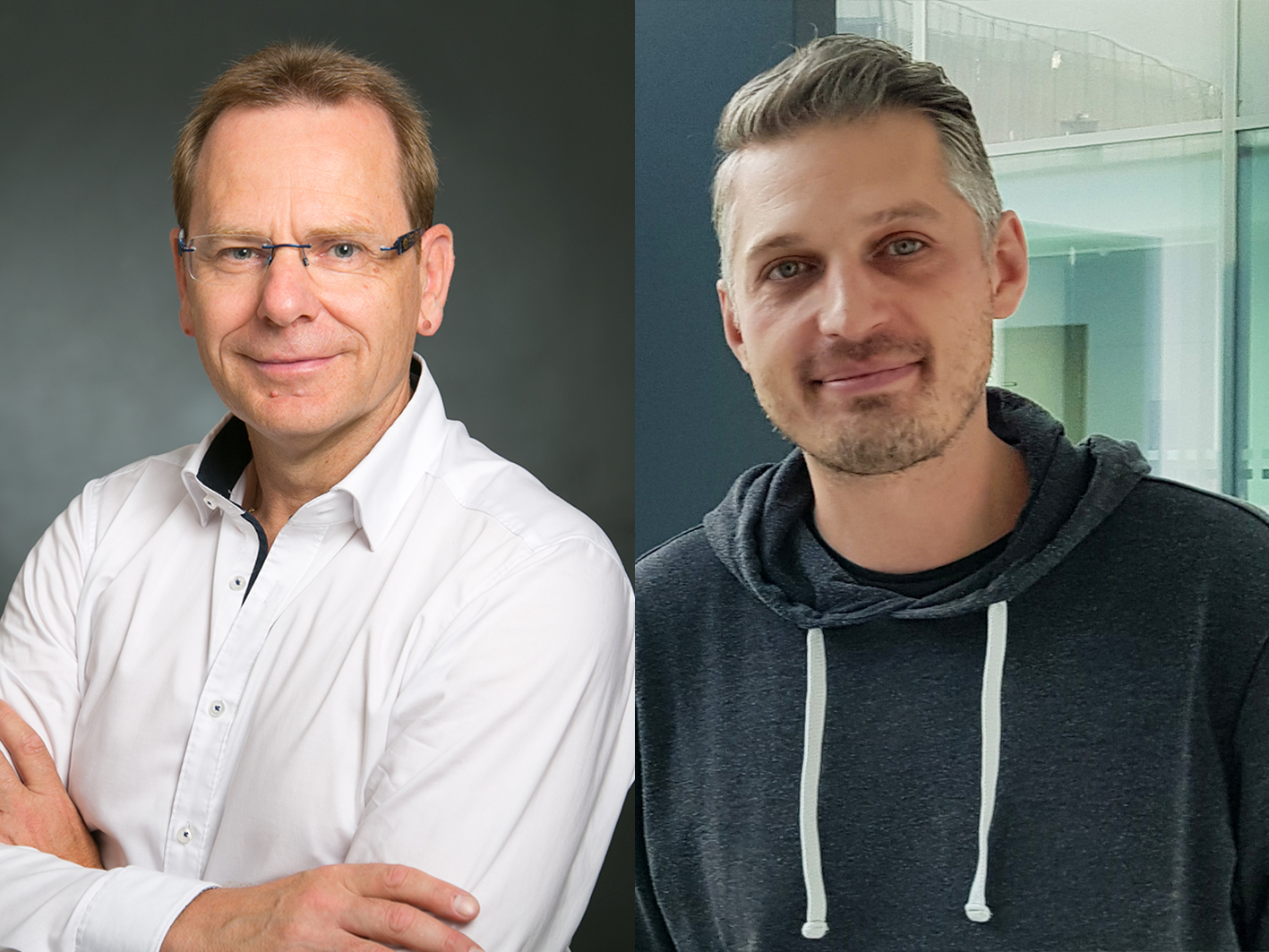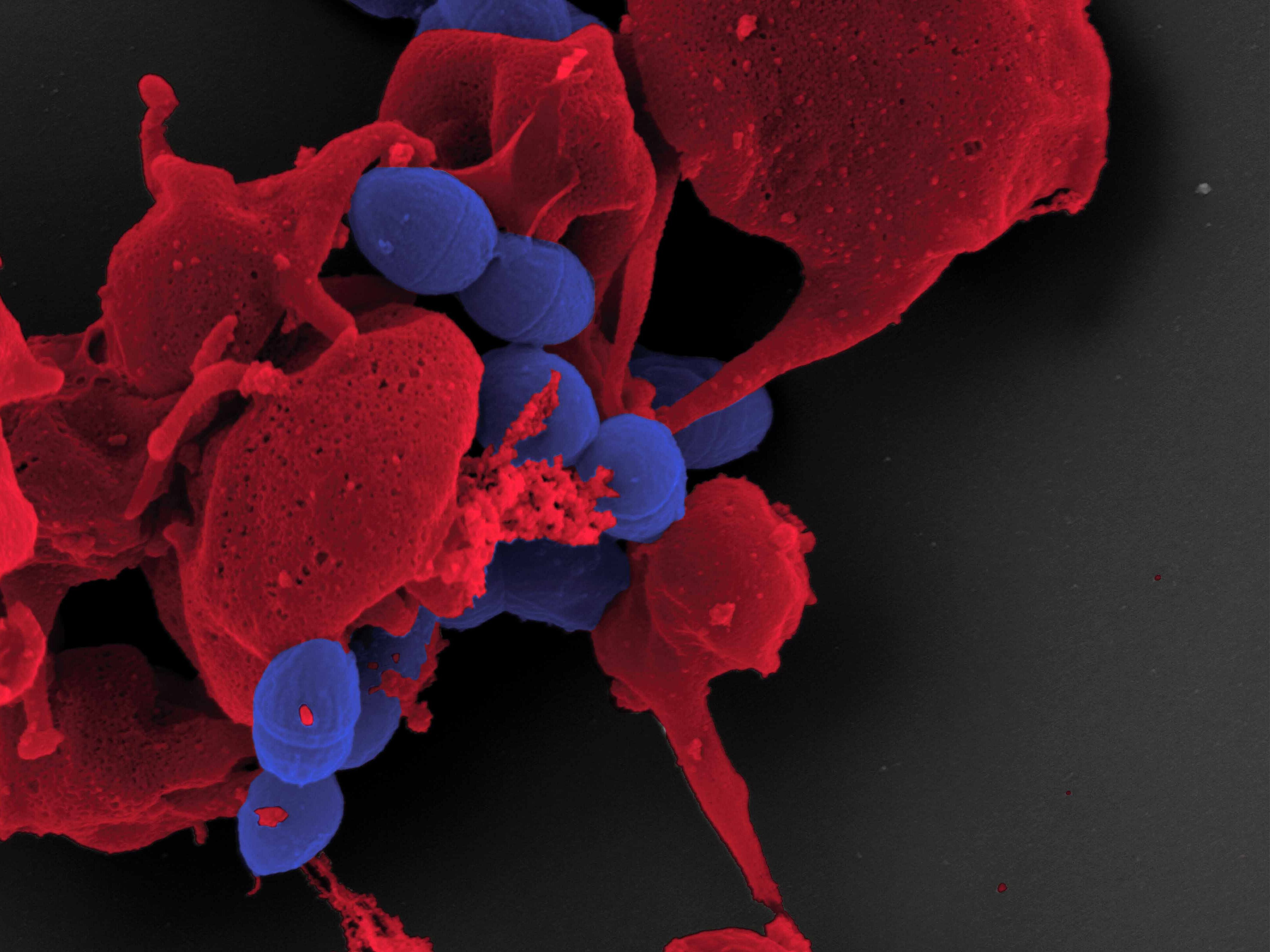Streptococcal species include commensals, but also pathobionts like pneumococci and group A streptococci (GAS). Despite available (conjugate-)vaccines, pneumococci are the leading cause of morbidity and mortality in children and older adults. However, vaccine coverage among serotypes is low, the vaccine is expensive and antimicrobial resistance is increasing. Thus, new protein-based serotype-independent vaccines or intervention strategies are needed. While pneumococci cause pneumonia, sepsis and meningitis, GAS diseases range from uncomplicated throat infections to severe invasive infections, such as necrotizing fasciitis. No vaccine is available against GAS. This presentation will highlight structure-function analysis as well as protectivity of putative pneumococcal vaccine candidates and GAS heterogeneity in severe infections.
Sven Hammerschmidt is the Head of the Department Molecular Genetics and Infection Biology, University of Greifswald. After completing his doctorate in Microbiology in 1996 (Hannover), he started his postdoctoral studies on Streptococcus pneumoniae virulence factors at the Helmholtz Center for Infection Research (1996-2003). After moving his group to the Research Center for Infectious Diseases at the University of Würzburg (2023-2007), he became Professor (W2) at the Institute for Medical Microbiology, LMU Munich in 2007. In 1998, he received the Robert Koch Award for Post-Docs and in 2007 the Becton-Dickinson Research Award for his studies on the host-pathogen interplay of the pathobiont S. pneumoniae.
Nikolai Siemens is associate professor at the Department of Molecular Genetics and Infection Biology, University of Greifswald. He received his diploma and doctoral degrees from the University of Rostock in 2009 and 2012, respectively. In 2016, he completed postdoctoral studies on necrotizing skin and soft tissue infections at the Center for Infectious Medicine, Karolinska Institutet (Stockholm, Sweden). In 2017, Nikolai Siemens established his research group at the University of Greifswald. His team has an interest in host-pathogen interactions and the work currently performed investigates the impact of host environment on different streptococci and vice versa.
Moderation: Professor Dr. Thomas Klinger
------------------------------------------------
Program of the lecture series "Life sciences. From Bacterial Infection to Therapy" in the summer semester 2024
Monday, April 29, 2024 · 6:00 p.m
From colonization to invasive infections and intervention
Professor Dr. Sven Hammerschmidt, Professor Dr. Nikolai Siemens (both University of Greifswald, Department of Molecular Genetics and Infection Biology, Interfaculty Institute for Genetics and Functional Genome Research)
Monday, May 27, 2024 · 6:00 p.m
Glycobiology and Vaccine Development
Professor Dr. Dr. H. c. Peter H. Seeberger (Max Planck Institute for Colloids and Interfaces Research, Potsdam)
Monday, June 24, 2024 · 6:00 p.m
Lung infections and ARDS
Professor Dr. Susanne Herold, M. D., Ph. D. (University Hospital Giessen and Marburg, Medical Clinic V, Clinic for Infectious Diseases and Hospital Hygiene)
Monday, July 8, 2024 · 6:00 p.m
The experimental human pneumococcal challenge model: opportunities and applications
Dr. Britta Urban (University of Oxford, Department of Paediatrics)
Monday, September 16, 2024 · 6:00 p.m
Digital evening lecture
Staphylococcal superantigens at the commensal-pathogen interface
Professor John McCormick, Ph. D. (University of Western Ontario, Department of Microbiology & Immunology)
Conception: Professor Dr. Sven Hammerschmidt, Professor Dr. Nikolai Siemens (both Greifswald)
-------
Organizational information
The Alfried Krupp Wissenschaftskolleg is offering this event live as a zoom meeting in which viewers can participate in writing via chat.
- We would be pleased if you provided your clear name when dialing into Zoom. Of course, you can also take part in the event under a pseudonym.
- A list of all participants can be viewed by all those involved throughout the event.
- During the lecture, the microphones of the spectators are all automatically muted so that no disturbing background noise is generated. You are welcome to turn on the camera of the spectators during the lecture.
- During the entire event, requests to speak or questions can be asked in writing in the chat.
Recording of the digital lecture
The digital lecture will be recorded for use in the college's media library. Only the speaker, his/her presentation and the moderator will be heard or seen in the recording. Video, audio or chat contributions are not recorded. A "REC" sign at the edge of the picture informs the participants.


